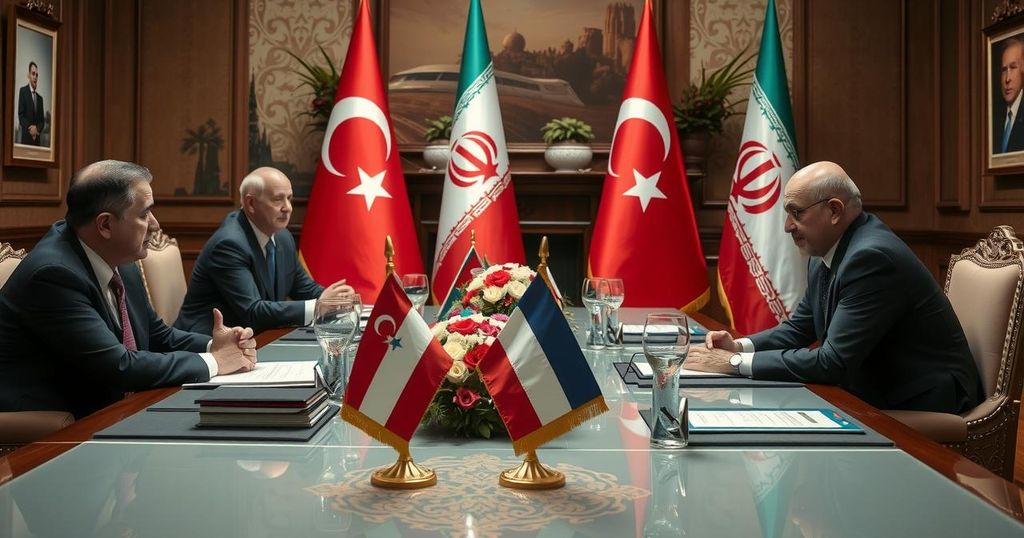Leaders from Turkiye and Iran convened in Cairo at the D-8 summit, discussing the ongoing regional conflicts and calling for unity in Syria and action in Gaza. This marks a significant moment in diplomacy, with the Iranian president’s first visit to Egypt since 2013, amidst a backdrop of heightened tensions historically between the two nations.
The recent summit held in Cairo brought together the leaders of Turkiye and Iran for the first time since the ousting of Syrian President Bashar Assad. This gathering of the Developing-8 (D-8) organization focused on addressing regional issues amid ongoing conflicts in Gaza, Lebanon, and Syria. President Recep Tayyip Erdogan of Turkiye emphasized the need for unity and the restoration of Syria’s territorial integrity, expressing hope for a peaceful coexistence among various sects and ethnic groups. Iranian President Masoud Pezeshkian called for immediate action to alleviate suffering in conflict zones, labeling it a moral obligation. This meeting marks a significant diplomatic effort, as Iran has not had a presidential visit to Egypt since 2013. The D-8 aims to enhance cooperation among its member states, which include Egypt, Turkiye, Iran, Nigeria, Pakistan, Bangladesh, Indonesia, and Malaysia, spanning from Southeast Asia to Africa.
The D-8 Organization for Economic Cooperation was established in 1997 to promote economic collaboration among developing nations. The geopolitical significance of the summit is heightened by Egypt’s recent mediation in the Gaza conflict and the broader regional instability. The long-standing tension between Iran and Egypt has been somewhat alleviated by diplomatic visits and discussions, indicating a shift in relations influenced by shared concerns over the regional crises and the impact of external aggression in the region.
In summary, the summit in Cairo served as a pivotal moment for Turkiye and Iran to discuss pressing regional issues, including the ongoing conflicts in Gaza and Syria. The leaders’ calls for unity, territorial integrity, and immediate action to alleviate humanitarian crises reflect a willingness to forge stronger diplomatic ties and work collaboratively. This meeting could signal a new era of cooperation among Muslim-majority countries in addressing shared challenges.
Original Source: www.arabnews.com







